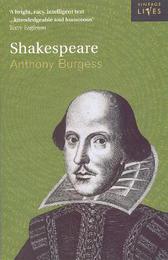
|
Shakespeare
Paperback / softback
Main Details
Description
A delightful and uniquely imaginative tribute to the Bard, incorporating biography, theatrical history, and a vivid recreation of the Elizabethan age. Among Shakespeare's many biographers none brings to his subject more passion and feeling for the creative act than Anthony Burgess. He breathes life into Shakespeare the man and invigorates his times. His portrait of the age builds upon an almost personal tenderness for Shakespeare and his contemporaries (especially Ben Jonson), and on a profound sense of literary and theatrical history. Anthony Burgess's well-known delight in language infuses his own writing about Shakespeare's works. And in the verve of his biography he conveys the energy of the Elizabethan age.
Author Biography
Anthony Burgess was born in Manchester in 1917. He served in the army from 1940 to 1954 before becoming a colonial education officer. It was while he held this post that doctors told him he would die, and he decided to try to live by writing. He achieved a worldwide reputation as one of the leading novelists of his day, and one of the most versitile. His writings include criticism, scripts and translations, and a Broadway musical, and he composed three symphonies which have been publicly performed in the USA. His books have been published all over the world and include A Clockwork Orange, The Clockwork Testament, Inside Mr Enderby, Enderby's Dark Lady, Earthly Powers, Abba Abba and The End of the World News. Anthony Burgess died in 1993.
Reviews"Bright, racy...knowledgeable and humorous, alternately sensible and quirky." -- Terry Eagleton "Anthony Burgess's wonderfully well-stocked mind and essentially wayward spirit are just right for summoning up an apparition of the Bard which is more convincing than most" -- David Holloway Daily Telegraph "Animated by affection and an understanding of the creative imagination that only a creative writer can bring to bear" Atlantic "A smooth-flowing narrative, often enlivened by Anthony Burgess's Joycean appetite for linguistic fantasy" The Economist
|